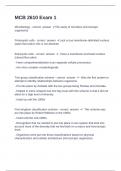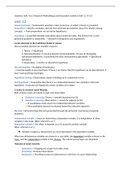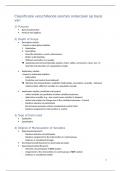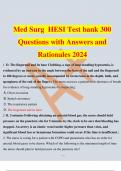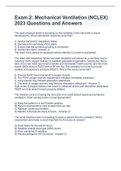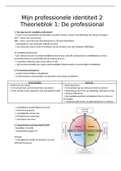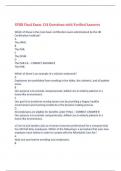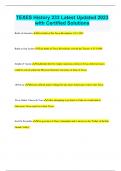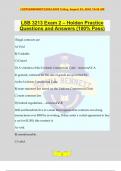Exam (elaborations)
MCB 2610 Exam 1 Question and answers correctly solved 2024/2025
- Course
- Institution
MCB 2610 Exam 1 Question and answers correctly solved 2024/2025 MCB 2610 Exam 1 Microbiology - correct answer The study of microbes (microscopic organisms) Prokaryotic cells - correct answer Lack a true membrane-delimited nucleus (open floor plan); this is not absolute Eukaryotic cel...
[Show more]
